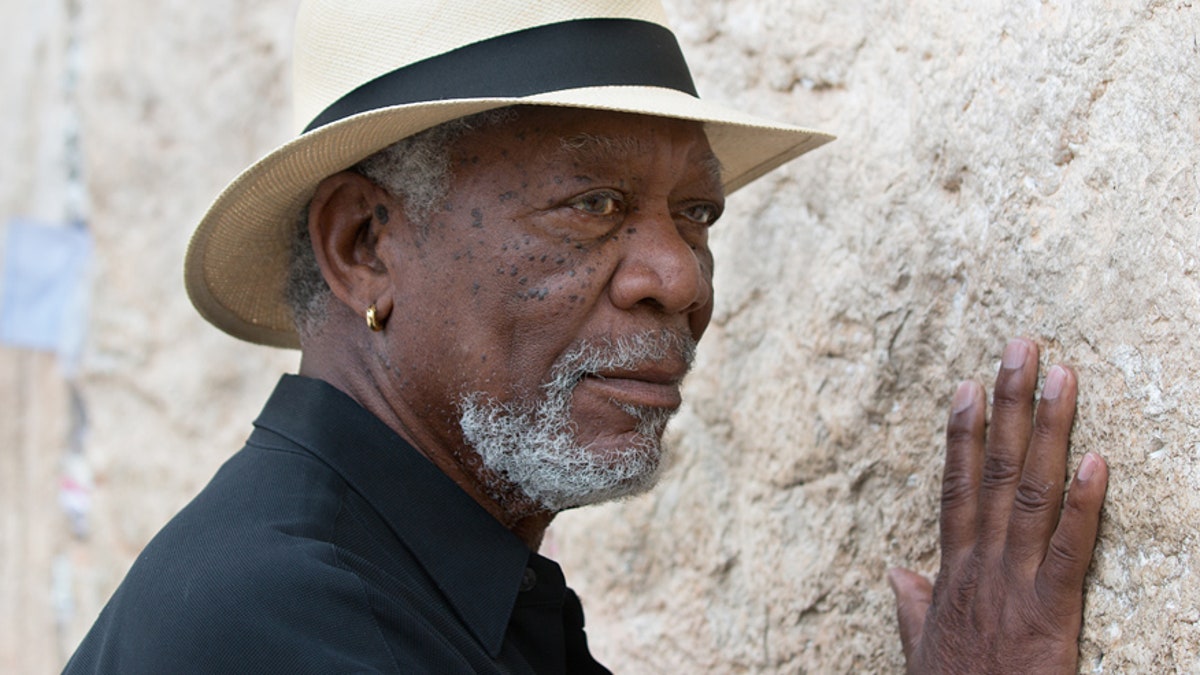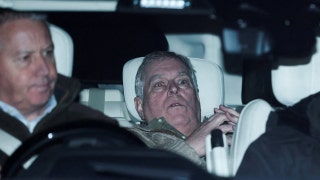
(Photo credit: National Geographic Channels/Matthew Paul Turner) (National Geographic Channels)
LOS ANGELES – Morgan Freeman played God in "Bruce Almighty," but for "The Story of God with Morgan Freeman," he's just a man, who traveled to 20 cities in seven different countries in search of answers to questions such as: Who is God? What happens when we die? Why does evil happen?
The six-episode "The Story of God," premiering Sunday, April 3 on National Geographic Channel, takes the Oscar winner to some of humanity's greatest religious sites, including Jerusalem's Wailing Wall, India's Bodhi Tree, and the pyramids in Egypt, to uncover the long-lost religions of our ancestors and to immerse himself in modern-day religious experiences and rituals.
"What we've done is go around the world asking, observing, trying to get that sense of what binds us all together," Freeman told FOX411. "We came away with the idea that we're much more the same than we are different. Every religion is after the same thing."
The end goal of "The Story of God" is to open an interfaith dialogue about ideas and values that we all share, not that we disagree on. Toward that objective, it examines the beliefs of Christians, Jews, Muslims, Hindus, Buddhists, and more, with the help of archaeologists and holy men. It covers the topics: Beyond Death (April 3), Apocalypse (April 10), Creation (April 17), Who is God (April 24), Evil (May 1) and Miracles (May 8).
"I don't think that we've said or shown anything that will upset any orthodoxies," says Freeman, who approached the quest for knowledge with the initiative of total acceptance. "We've made no judgment calls. We didn't set out to prove or disprove, only to learn."
Morgan doesn't share his personal beliefs in the series, feeling it's more important for him to be neutral. But he does pass along some of the knowledge that he acquired on this spiritual journey.
One such bit is that the true definition of the word apocalypse is frequently misconstrued. It doesn't mean the end of days. "It doesn't mean the end of anything," he says. "It means unveiling. It's the awakening. It's the next best thing to enlightenment, right?"
The beginning of religion is also looked at in the episode covering evil from the perspective that the birth of religion may be inextricably tied to the need to control evil.
"If you ask the basic question: Did God create? Then if God created evil, why? The way we get around that is by saying, 'Well, he also gave us free will.' We only know that evil exists. Why, we haven't figured out yet, really," Morgan admits.
"The Story of God" also presupposes that religion was created to answer man's questions. But today, we know why the earth shakes and splits, why the sun occasionally goes dark, or why there is a drought. Having that wisdom, however, does not displace the concept or the belief in the existence of God.
"I think the more informed you are, the deeper your beliefs can be," says Freeman, when asked if modern knowledge has changed religion. "I don't think there were people more informed than the Catholic hierarchy or the Jewish hierarchy from the head rabbi on down. The nature of religion must change with knowledge. The reality of religion gets more sound, more pronounced."
"The Story of God" premieres Sunday, April 3 on National Geographic Channel.














































